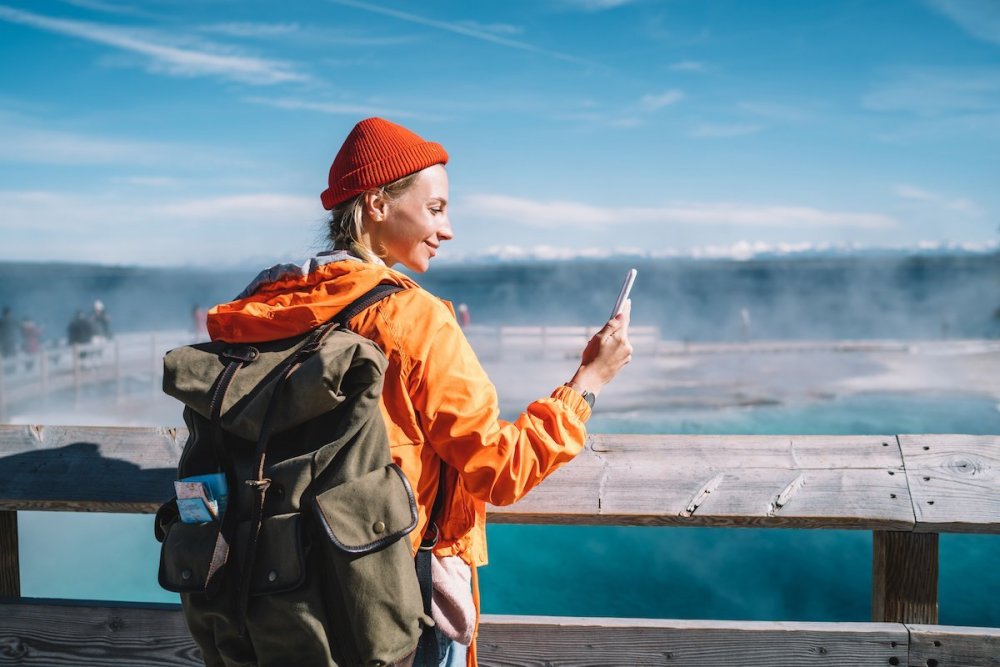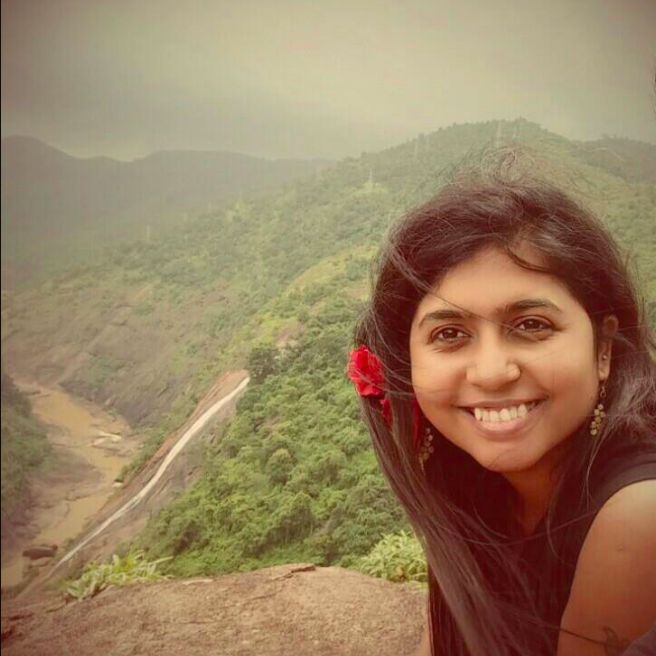Can being curious potentially make us smarter, more innovative and happier? Sonia Vadlamani throws light on the rewards of being inquisitive and discusses ideas for staying curious throughout our lives.
We are all born curious, but oddly the ‘episodes of curiosity’ common in kids pertaining to asking questions and observing objects intently dwindles as we age. As a matter of fact, children are known to be incredibly inquisitive and are often seen exploring new things around them, for no other reason than to know or understand more. However, as we grow older, we tend to gradually lose this appetite for curious pursuits.
William James, a renowned philosopher and psychologist, defined curiosity as “the impulse towards better cognition”. Interestingly Ian Leslie, author of the acclaimed bestseller Curious, describes curiosity as the unique amalgamation of “intelligence, determination and a hunger for novelty,” in the sense that it drives us towards discovering what we do not already know. Curiosity constitutes a fundamental element of our cognition, and thus is essential for our learning motivation, decision-making as well as healthy development.
Indeed, a part of our fading curiosity as we age can be ascribed to a phenomenon known as ‘brain economy’. As we continue to learn, the brain works on building and reinforcing neural pathways and energy-saving shortcuts so that we don’t have to expend mental energy for repetitive tasks. However, researchers agree that it is important to stay curious as we grow older, despite increasing demands being put on our time.
Why does staying curious matter?
Research suggests that staying curious can improve our learning mechanisms and enhance brain plasticity, as the more curious we are about a topic, the likelier we are to remember it well.
For instance, while chemistry seemed like a daunting subject to several of my classmates, I remember being fascinated by it. For example, how can potassium be called a metal yet be soft enough to cut with a knife? It was intriguing and fun to draw out answers and understand ions, bonds and chemical reactions. Indeed, I reckon it was my curiosity that made me receptive to grasping my chemistry lessons with ease and remembering the details without much effort.

Stay curious through lifelong learning
Being passionately curious allows us to develop an abundance mindset, as it propels us towards learning and applying these new learnings in daily life, sparking growth and innovation. Staying curious can also help us shun our prejudices and bridge our differences, thus lowering anxiety and strengthening our social connections.
A 2014 study by Vincent D Costa et al also pointed out that our brains trigger higher dopamine levels when we are not familiar with the stimulus and the reward is unknown to us (rather than when we are aware of the stimulus and the rewards). So, acquiring new information or performing newer tasks that answer our curiosity can improve dopamine release, which, in turn, can offer a quick mood boost, improve our decision-making abilities and even prevent health conditions like Parkinson’s disease and depression.
8 ways to stay curious
Curiosity is akin to a mental muscle that can weaken if we don’t exercise it often. That’s why we need to make it a habit to flex it and stay curious on a consistent basis. Read on to discover eight ways to reignite your inner inquisitive spark.
1. Ask questions relentlessly
Carl Jung, eminent psychiatrist and the founder of analytic psychology, described the ability to ask questions as “the greatest resource in learning the truth”. Indeed, there are no dumb, silly, small or big questions, as each question can unlock a conversation and every answer can present a fresh insight for you or others. Always carrying a notebook makes it easier for you to quickly jot down topics which spur your interest and questions you’d like to pursue next.
2. Step out of your comfort zone
Staying in our comfort zone is undoubtedly convenient, especially since we humans are hardwired to choose familiarity over uncertainty. However, staying within our safety bubble stifles creativity and often harbors discontentment, leaving us feeling bored in life.
RELATED: Why we should all start embracing the unknown
In fact, living more adventurually and replacing fear of the unfamiliar with a healthy curiosity is what some great artists do differently. Indeed, staying curious and open to new experiences can help us welcome newer perspectives, let go of the past and rediscover our purpose in life.
3. Nurture a wide range of interests
“Creativity doesn’t happen in a void,” observed Ian Leslie. It has been reported that successful artists and philosophers like Leonardo da Vinci and Aristotle were curious to the extent of accumulating vast amounts of knowledge which they could recall readily when needed. Leslie further points out that this reservoir of learnings allowed them to “mix and remix ideas and themes, making new analogies and spot unusual patterns” that ultimately steered them towards creative breakthroughs.
“Curiosity is akin to a mental muscle that can weaken if we don’t exercise it often. That’s why we need to make it a habit to flex it and stay curious on a consistent basis.”
However, it is also important to train yourself to be the expert in a niche of your interest. Developing an informed perspective on a wide variety of subjects would allow you to possess a valuable expanse of knowledge. Furthermore, diversifying your interests will enable you to tap into your intuition with greater ease and thus make better decisions. This will also put you in a better position to specialize in areas which align with your goals and purpose.
4. Gain new perspectives
While it can’t be denied that we tend to get more comfortable with our own perspectives and viewpoints over time, it can be immensely rewarding to learn to change perspective and examine events and actions from the viewpoint of others.
RELATED: Changing perspective and gaining happiness
Leslie defines this as ‘empathic curiosity’, wherein he encourages us to put ourselves in other people’s shoes and analyze why they react in a certain manner and make certain choices. Gaining a different perspective in this way can help us stay curious, as well as improve our happiness levels.
5. Cultivate awe every day
There are several reasons why awe makes your life better, the ability to stay curious being one of the benefits. A study by Craig L Anderson et al revealed a positive relationship between dispositional awe in people and their curiosity levels. The findings concurred that those who experience awe more often are more likely to stay curious and learn at a faster pace.
It is possible to incorporate awe into our daily life, and not just feel it when we listen to a beautifully composed piece of music or making a trip that was always on the bucket list. Slowing down and lingering, being mindful, reconnecting with nature and questioning the things we always overlooked are some of the ways to look for daily experiences of awe, and gradually re-instill curiosity.

Travel keeps you curious and is awe-inspiring shutterstock/GaudiLab
6. Look at learning as a privilege and fun
“It is a miracle that curiosity survives formal education,” Albert Einstein famously stated. Learning is often seen as a cumbersome task or something that we need to participate in for better grades or a promotion. However, studies show that staying curious makes learning effective and more enjoyable, enabling us to be motivated to achieve new milestones.
Additionally, redefining learning as a stress-free and pleasurable activity leads to enhanced activity in the amygdala region of the brain and increased release of dopamine, resulting in greater retention.
7. Meet other curious people often
Brian Grazer, the prominent TV producer, recommends meeting other interesting people and having what he calls “curiosity conversations”. Remember that positive communication is the key to holding meaningful, intriguing interactions, and building lasting friendships. Consulting different people about their interests and opinions can introduce us to new learnings and fresh interests, thus rekindling curiosity within us.
8. Look inward
Turning your curiosity inwards can help you understand yourself better and thus set more realistic goals for yourself. Spare 5-10 minutes each day to practise attentive self-reflection while you withhold your emotions, and observe and understand your reaction to various stimuli, fears, thoughts, attachment styles, moods, etc.
“Turning curiosity inwards can help you understand yourself better and thus set more realistic goals for yourself.”
Staying curious towards yourself can help you find self-validation, and observe kindness and empathy towards yourself, just like you’d do for a friend. Looking inward can also enable you to resolve a troublesome pattern that may be preventing you from living your best possible life, like bottled up resentment that you need to let go of, or a habit of indecisiveness that you need to change.
Takeaway: staying curious
Curiosity is listed as an essential cognitive need in Maslow’s Hierarchy of Needs, which underlines its importance in the way we define our purpose, make our choices and pursue goals. Rekindling the desire to know and cultivating the practice of staying curious can help us lead a life with meaning, adventure and happiness. •
Main image: shutterstock/Dragon Images
happiness.com | The fine art of being: learn, practise, share
Are you a happiness.com member? Sign up for free now to:
■ enjoy our happiness magazine with practical life tips
■ share and support others in our happiness forum
■ Develop with free online classes in our happiness Academy
Learning | Altruism | Compassion | Motivation
Written by Sonia Vadlamani
 Fitness and healthy food blogger, food photographer and stylist, travel-addict and future self journaler. Sonia loves to write and has resolved to dedicate her life to revealing how easy and important it is to be happier, stronger and fitter each day. Follow her daily pursuits at FitFoodieDiary or on Instagram.
Fitness and healthy food blogger, food photographer and stylist, travel-addict and future self journaler. Sonia loves to write and has resolved to dedicate her life to revealing how easy and important it is to be happier, stronger and fitter each day. Follow her daily pursuits at FitFoodieDiary or on Instagram.





Join the conversation
You are posting as a guest. If you have an account, sign in now to post with your account.